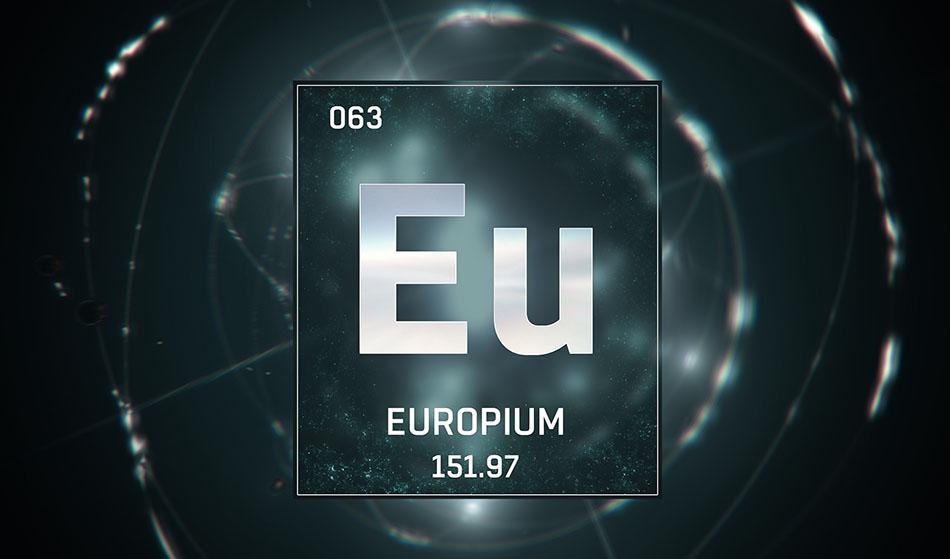Dec 18 2001

remotevfx.com / Shutterstock
Europium (Eu) is part of the lanthanide series of elements. Demarcay discovered this element in 1901 and succeeded in isolating it in a fairly pure form from the earth.
However, in 1890, it was Boisbaudran who reportedly observed europium from the spark spectral lines of samarium-gadolinium concentrates.
Appearance and Properties
The pure metallic form of europium was isolated only recently. The element is prepared by heating a mixture of Eu2O3 with 10% excess of lanthanum metal in a tantalum crucible under a high-vacuum condition. Europium gets deposited on the crucible’s walls.
The europium metal has a silvery-white appearance. Monazite and bastnasite are the main ores containing europium.
Europium burns in air at temperatures of around 150 °C–180 °C. It has excellent ductility and its hardness is similar to that of lead. It also oxidizes quickly in the air, and hence is the most reactive of all rare-earth metals.
When europium is mixed with water, it reacts explosively, just like calcium. Seven isotopes of europium have been identified so far. Also, europium is one of the rarest and most costly rare-earth metals.
Applications
Since the isotopes of europium act as good neutron absorbers, they are being studied for use in nuclear control applications. Its oxide is extensively utilized as a phosphor activator.
Europium-activated yttrium vanadate is commercially used as a red phosphor in color television tubes, and europium-doped plastics are utilized as laser materials.